A Complete Guide to Citations Building for Local SEO
In today’s competitive digital landscape, being found online is no longer just an advantage—it’s a necessity. For local businesses, especially, visibility in local search results can make or break success.
This is where citation building becomes a crucial pillar of your SEO strategy.
Citations—mentions of your business’s name, address, and phone number (NAP) across the web—not only help potential customers discover you but also send strong trust signals to Google. When done right, they improve your local rankings, strengthen your brand presence, and drive more foot traffic and conversions.
In this blog, we’ll explore the most effective citation building strategies for 2025, updated with the latest tools, trends, and best practices.
Whether you’re starting from scratch or refining an existing local SEO strategy, this guide will equip you with everything you need to rank higher, reach wider, and grow smarter.
What Are Citations in SEO?
Citations in SEO refer to any online mention of a business’s Name, Address, and Phone Number—commonly known as NAP. These references serve as digital proof of your business’s existence, location, and contact details, and they appear across a variety of platforms such as:
- Local business directories (e.g., Yelp, YellowPages, Justdial)
- Mapping services (e.g., Google Maps, Apple Maps)
- Review sites (e.g., Trustpilot, TripAdvisor)
- Social media platforms (e.g., Facebook, LinkedIn)
- Blogs, forums, and local news articles
Search engines like Google use these citations to verify the authenticity and consistency of your business details. The more consistent and widespread your NAP information is across credible sources, the more trust signals you send to search engines, which in turn boosts your local search rankings.
Example of a Citation
Let’s say you run a local bakery based in New York City. A proper citation of your business on Yelp might look like this:
XYZ Bakery
(Building name), (Street name),
(Area), New York City, US
[Contact]
www.xyzbakery.com
Even if Yelp doesn’t link directly to your website or include a review, the presence of this consistent NAP information helps Google confirm your business’s legitimacy and geographic location.
Why Citations Matter for Local SEO in 2025
In 2025, citations remain one of the most influential ranking factors for local SEO, helping businesses improve their visibility, credibility, and conversion rates.
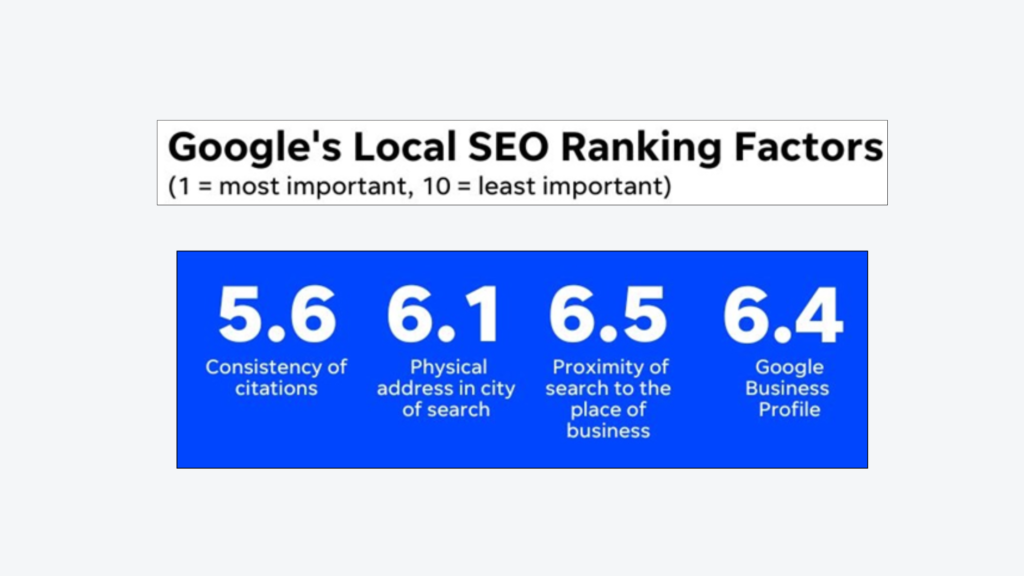
When your business is consistently mentioned across authoritative platforms with accurate details, it tells search engines—and potential customers—that your business is legitimate, active, and trustworthy.
Here’s a deeper look at why citations are critical, backed by the latest stats:
1. Improve Local Rankings
Search engines like Google rely heavily on citations to evaluate your business’s relevance and authority in a specific geographic area. Consistent citations across trusted platforms reinforce the legitimacy of your business.
- According to the BrightLocal Local Search Ranking Factors 2024 report, citations contribute to nearly 11% of local pack ranking signals, making them a top 5 factor in local SEO.
- Businesses with consistent NAP data across 50+ directories have been shown to rank significantly higher than those with fewer or inconsistent citations.
The more consistent and widespread your citations, the more likely you are to show up in the coveted Google Local Pack—the top 3 map results.
2. Boost Online Visibility
Citations expand your online presence beyond your website. Every listing on a directory, review site, or mapping platform is another opportunity for potential customers to find you.
- Studies show that businesses listed on 40+ local platforms receive up to 58% more clicks from local search results.
- Appearing on high-traffic directories (like Yelp or Bing Places) increases the chances of your business appearing in zero-click searches (where users get their answers directly on the results page).
The broader your citation footprint, the more visible your business becomes to people searching for services like yours.
3. Build Credibility & Trust
Citations on reputable, recognizable platforms act like online endorsements for your business. When potential customers see your business on platforms they already trust, it reinforces your brand’s reliability.
- 84% of consumers trust online business directories and customer reviews as much as personal recommendations (Source: BrightLocal Consumer Survey 2024).
- Businesses with complete, accurate citations and profiles across top sites see a 33% higher trust score among local consumers.
Being listed on multiple reputable sites boosts your credibility in the eyes of both customers and search engines.
4. Drive More Traffic & Conversions
Accurate citations help customers easily find your business, contact you, and convert—whether that’s making a phone call, visiting your website, or walking into your store.
- Inconsistent NAP details are responsible for 41% of missed local search opportunities (Source: Moz).
- Businesses with clean and consistent citations generate 71% more website visits and 45% more direction requests from Google Maps users.
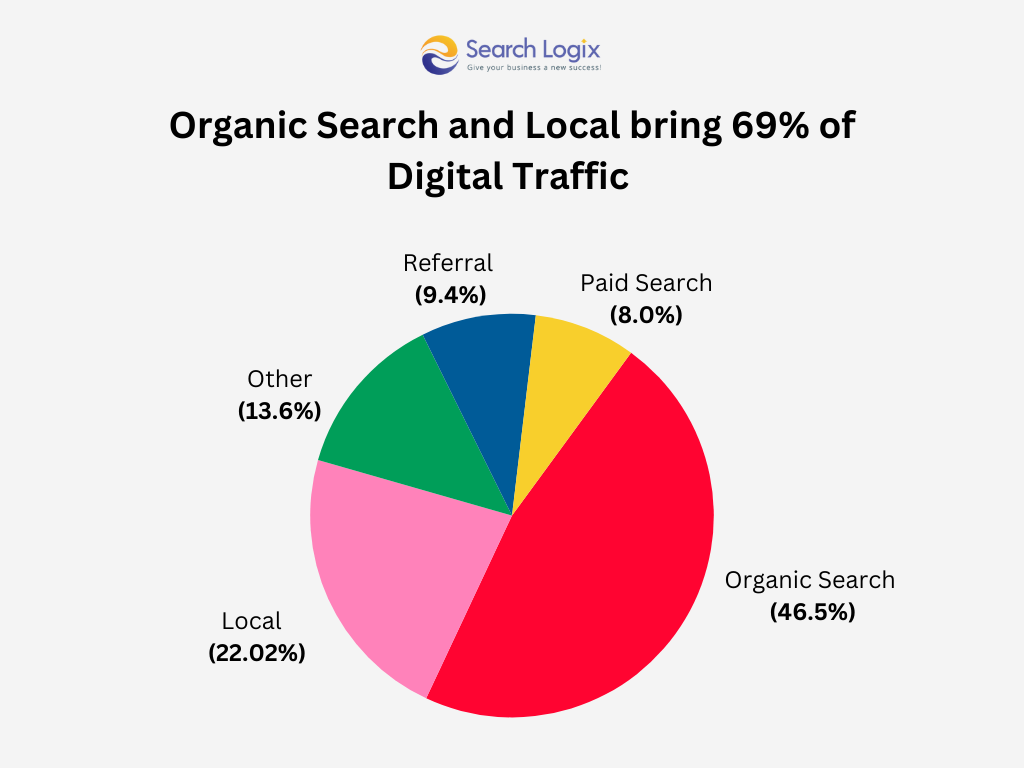
The easier you make it for users to reach you, the more leads, visits, and sales you’ll see from local search.
Key Elements of a Strong Citation
Search engines and users now expect more complete and enriched business listings that offer valuable context and enhance the user experience.
To truly stand out in local search results and build trust with both Google and potential customers, your citations should include the following key elements:
1. Business Description (With Keywords)
A well-crafted business description helps search engines understand what your business does and which keywords it should rank for. Including relevant keywords naturally in your description boosts visibility in local search.
Example:
“Fresh Greens Market is an organic grocery store in Chicago offering locally sourced produce, farm-fresh dairy, gluten-free snacks, and eco-friendly household products.”
2. Website URL
Your citation should always link back to your official business website. This not only helps drive traffic but also builds domain authority and improves search engine trust.
3. Hours of Operation
Providing accurate business hours ensures that customers know when you’re open, and it helps search engines feature your business in relevant searches like “open now” or “near me.”
4. Social Media Links
Adding links to your Facebook, Instagram, LinkedIn, or other social profiles helps build credibility and allows customers to engage with your brand across different channels.
5. Reviews and Ratings
92% of consumers read reviews before visiting a local business (Source: BrightLocal, 2024). Moreover, listings with 4+ stars receive 60% more clicks than lower-rated competitors.
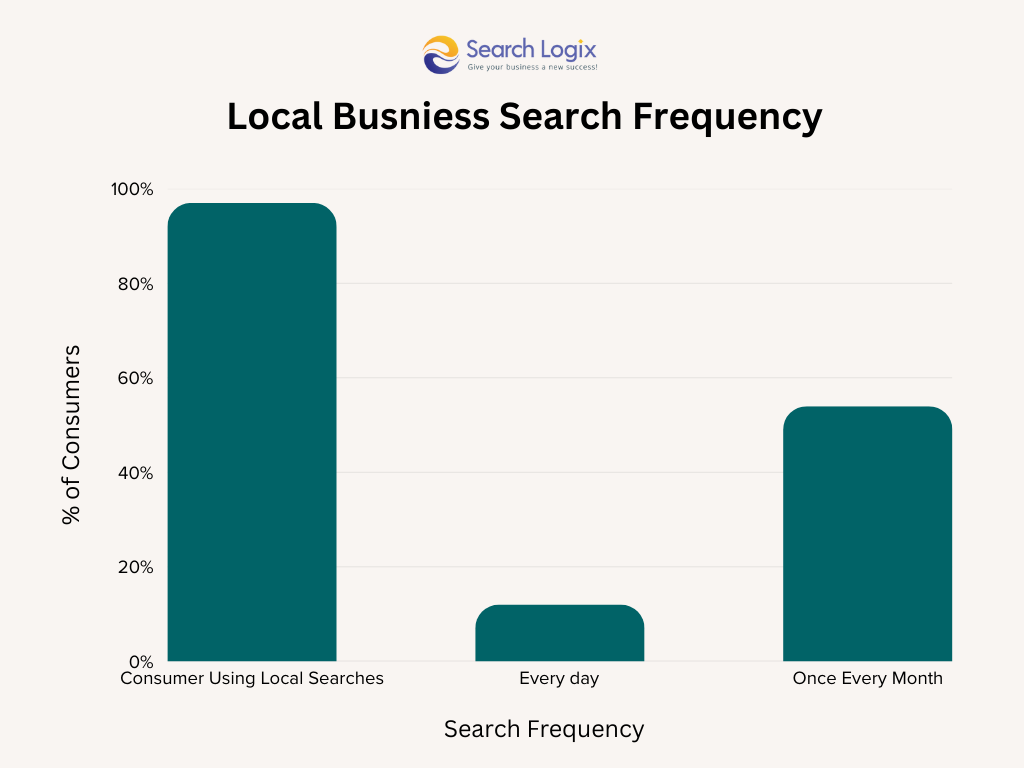
Citations that display customer reviews and average star ratings (like Google Business Profile, Yelp, or TripAdvisor) influence potential customers and play a major role in local SEO rankings.
6. Photos or Videos
Visual content adds engagement and trust to your citations. Businesses that include high-quality photos or videos are more likely to get clicks and on-site visits.
Google listings with photos receive 42% more requests for directions and 35% more website visits
7. Category Tags
Selecting the right business category (and subcategories) tells search engines exactly what your business does. This helps them match your listing with relevant search queries.
Example:
For a digital agency, use categories like:
- “Marketing Agency”
- “SEO Services”
- “Web Design Company”
8. Service Areas
If your business serves multiple locations or offers delivery, listing your service areas ensures you show up in search results across those regions, even without a physical presence in each one.
Example:
“Austin-based plumbing company serving Cedar Park, Round Rock, and Pflugerville.”
Types of Citations: Structured vs. Unstructured
Understanding the two primary types of citations—structured and unstructured—is essential for developing a comprehensive local SEO strategy. Both serve different purposes, but when used together strategically, they can significantly boost your local search visibility, credibility, and traffic.
Structured Citations
Structured citations are listings of your business’s NAP (Name, Address, Phone number) on business directories and databases. These citations follow a standardized format and are easy for search engines to crawl and verify.
Where They Typically Appear:
- Google Business Profile (GBP)
- Yelp
- TripAdvisor
- Apple Maps
- Bing Places
- Yellow Pages
- Facebook Business Pages
- Better Business Bureau (BBB)
What They Include:
- Business Name
- Address (street, city, zip code)
- Phone Number
- Website URL
- Business Hours
- Category
- Photos and Description (optional but recommended)
Structured citations are one of the most important ranking signals for Google’s Local Pack and local map results. Google cross-checks the consistency of your NAP details across trusted sites to assess your business’s legitimacy and authority.
Unstructured Citations
Unstructured citations are mentions of your business that appear in content that’s not specifically designed to list business information. These can be blogs, articles, reviews, forum comments, press releases, or social media posts, and the NAP info may not always be complete.
Where They Typically Appear:
- News articles (e.g., local coverage of your business)
- Blog posts (e.g., “Top 10 Pizza Places in Chicago”)
- Press releases shared on media outlets
- Social media posts mentioning your business
- Online forums or Reddit threads
- Influencer reviews or YouTube descriptions
What They May Include:
- Business name (sometimes without full NAP)
- Partial address or city reference
- Hyperlink to website or social profile
- A mention of a product, service, or event
Unstructured citations help build brand awareness, topical relevance, and backlink equity. Even without complete NAP details, they’re valuable for contextual SEO, entity recognition, and influencing off-site signals.
Top Citation Building Strategies
To outrank your local competitors and become more visible in search results, you need a strong citation strategy. In 2025, citation building goes far beyond just listing your business on directories—it’s about precision, relevance, and adaptability in the evolving search landscape.
Here are the top strategies you should implement this year:
1. Claim & Optimize Your Google Business Profile (GBP)
Your Google Business Profile (formerly Google My Business) is the most valuable citation you can have. It’s the first-place users and Google look for your business details.
Optimization Tips:
- Fill out ALL fields: Business name, category, website, phone number, hours, attributes, etc.
- Add high-quality videos and photos regularly (interior, exterior, staff, services).
- List all relevant services and products using keywords customers are searching for.
- Create weekly posts to promote offers, blogs, or updates.
- Respond to FAQs and reviews actively to boost engagement and credibility.
Businesses with fully optimized GBP profiles are 2.7x more likely to be considered reputable by customers (Source: Google).
2. Submit to High-Authority Directories
Getting listed on high-authority directories expands your online footprint and builds credibility with search engines.
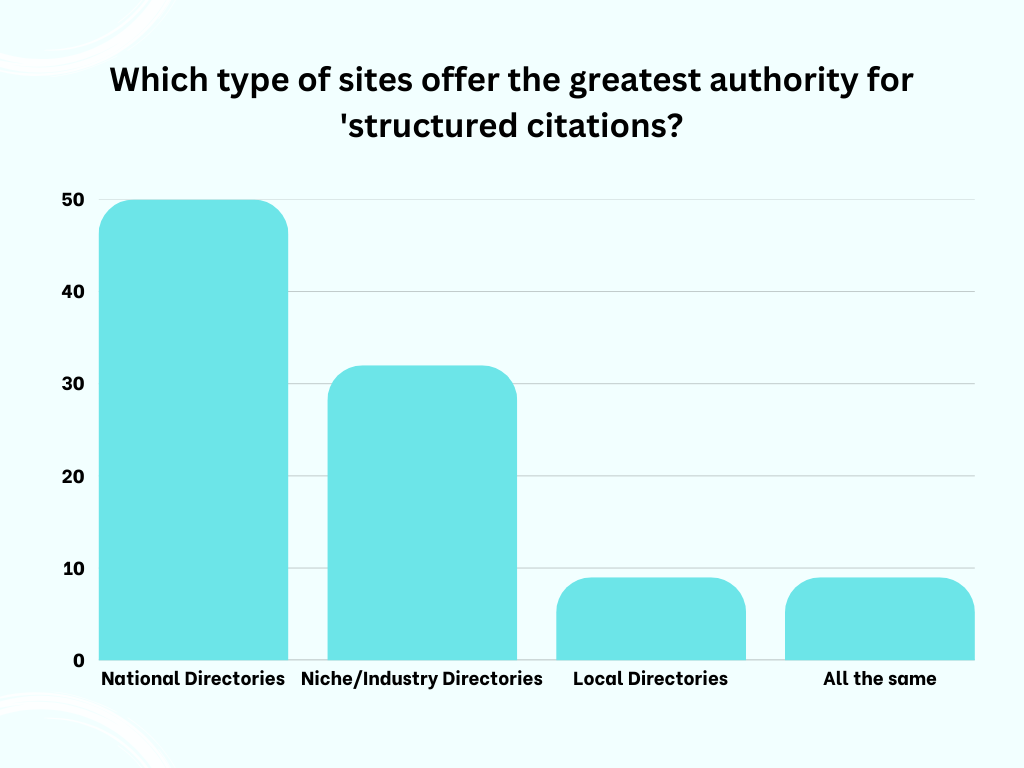
Top Directories in 2025:
- Bing Places – Microsoft’s answer to Google Maps.
- Apple Maps – Especially valuable for iOS users.
- Better Business Bureau (BBB) – Trusted by users and search engines alike.
- Foursquare – Still relevant for location-based discovery.
- Yelp, Thumbtack, Angi (HomeAdvisor) – Industry-specific or general purpose.
Ensure NAP consistency across all listings, and update them if your business info changes.
3. Use Trusted Data Aggregators
Data aggregators distribute your NAP to dozens (even hundreds) of directories automatically. This saves time and ensures consistency across the web.
Top Aggregators in 2025:
- Data Axle (formerly Infogroup)
- Neustar Localeze
- Foursquare (now also acting as a data source)
- Yext (paid service)
- Factual (now part of Foursquare)
Why It Matters: Using aggregators helps your business get listed in “secondary citations” like voice assistants, GPS systems, smart TVs, and app databases—without manual submissions.
4. Create Hyperlocal Citations
Hyperlocal citations focus on building authority in your immediate area. This is especially helpful for service-based businesses or stores with physical locations.
Where to Get Hyperlocal Citations:
- Local newspapers and community blogs
- Your city’s Chamber of Commerce website
- Local event listings and business round-ups
- Regional directories (e.g., “Best businesses in Austin”)
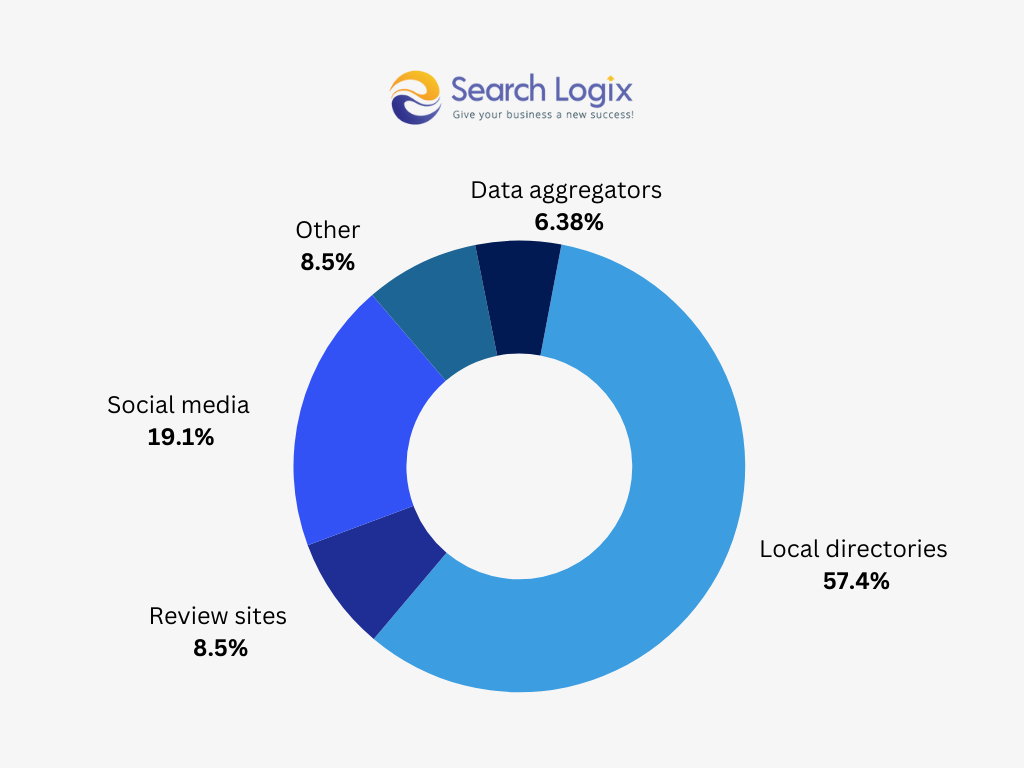
Why It Works: Hyperlocal citations increase your visibility for “near me” and local intent searches, which now make up 46% of all Google searches.
5. Industry-Specific Directory Listings
Relevance is key. Submitting your business to niche directories sends stronger ranking signals to Google and builds trust within your target market.
Examples by Industry:
- Healthcare: Healthgrades, Zocdoc, Vitals
- Legal: Avvo, Justia, FindLaw
- Home Services: Houzz, Angi, Porch
- Real Estate: Realtor.com, Zillow, Trulia
- Hospitality: TripAdvisor, Booking.com, OpenTable
Pro Tip: These listings often allow extended profiles, giving you more space to add keywords, FAQs, and customer trust signals.
6. Leverage Voice Search & AI-Readiness
With the rise of voice assistants (Alexa, Siri, Google Assistant) and AI-powered search, citations should be optimized for natural language queries and long-tail keywords.
How to Prepare:
- Use conversational language in your descriptions (e.g., “Where can I find vegan pizza near downtown LA?”).
- Include FAQs in your listings that answer common spoken queries.
- Ensure your website and GBP are structured with schema markup for local business.
Bonus Insight: Voice search now accounts for more than 20% of all mobile searches, and it’s growing each year.
7. Encourage & Manage Online Reviews
Citations with high-quality reviews are more likely to rank well and attract customers. Platforms like Google, Yelp, and industry-specific sites allow users to leave reviews directly on your listing.
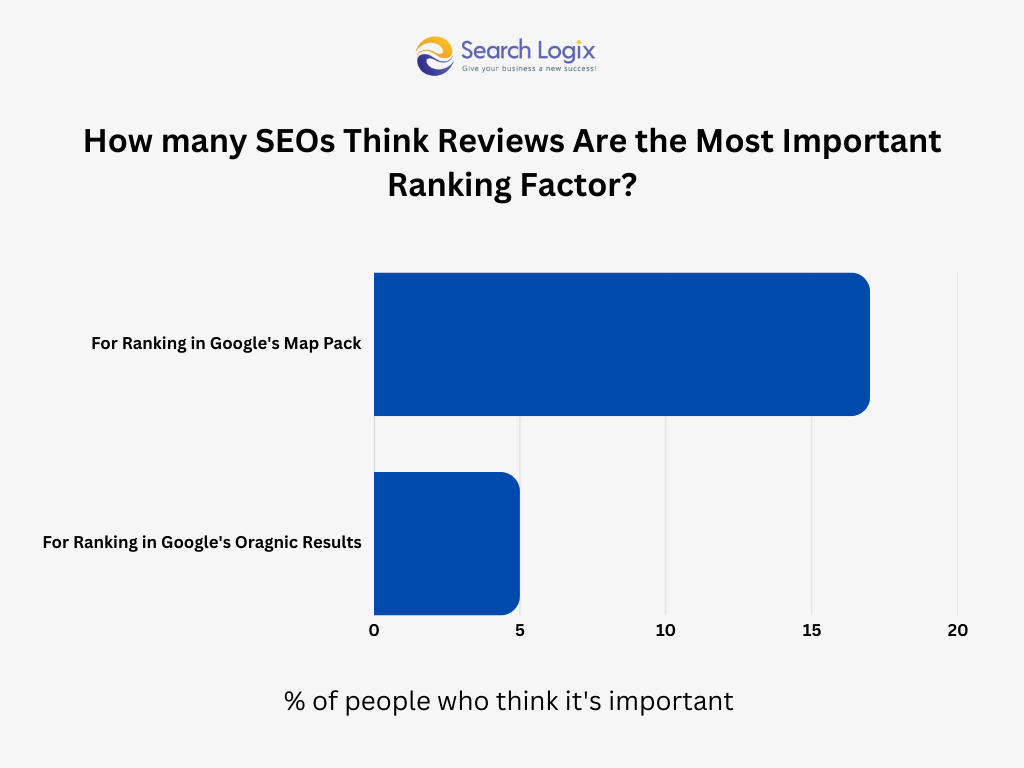
Best Practices:
- Ask satisfied customers to leave reviews with specific details.
- Respond promptly and professionally to both positive and negative reviews.
- Monitor reviews regularly across all citation platforms.
Impact: Listings with 4.5+ star ratings get 35% more clicks and are 3x more likely to convert leads.
Key Takeaways
In today’s competitive digital landscape, citation building is no longer just a checklist activity—it’s a strategic advantage. As search algorithms evolve and consumer behaviors shift toward hyperlocal, voice, and AI-assisted discovery, your business must be present, accurate, and optimized across all relevant touchpoints.
From structured listings on directories like Google Business Profile and Yelp to unstructured mentions in local blogs and news features, every citation serves as a trust signal that boosts your local rankings, online visibility, and customer trust.
To succeed in 2025 and beyond:
- Keep your NAP information consistent
- Focus on quality over quantity
- Build citations that are industry-specific and locally relevant
- Embrace AI-readiness and voice search optimization
- Leverage customer reviews and data aggregators to scale your efforts
Strong citations = stronger SEO outcomes. Start refining your citation strategy today and watch your business climb the local search ladder.
Partner with top SEO experts like eSearch Logix to leverage citation building with advanced and authentic techniques that have always worked. Our SEO professionals have 10+ years of experience in link building activities and bring immense benefits from local SEO activities.
Grab top spots in local search ranking with the most reliable SEO services by eSearch Logix today!







